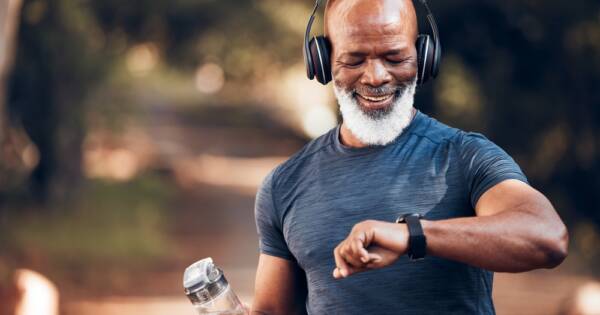Mental fitness (also referred to as mental resiliency) can be defined as having access to the personal resources necessary to overcome the daily stressors of life. When the demands outweigh those resources, stress may result (coupled with tight muscles, short fuse, and the overwhelming desire to choke the life out of someone). With the lazy days of summer slowly transitioning into the frenzied days of school, fall schedules, and heavier family workloads, chronic stress may progressively settle in like a dense fog. The results of prolonged stress can include fatigue, forgetfulness, chronic pain, depression, and a weakened immune system (just to name a few). So if managing stress, and strengthening mental fitness is important to good health and vitality, what considerations can be made to put stress in it’s place?
1. “Let Food Be Thy Medicine and Medicine Be Thy Food” -Hippocrates
The Dieticians of Canada, in a document, entitled Promoting Mental Health through Healthy Eating and Nutritional Care, have underlined the importance of various nutrients in supporting good mental health. Most of which are available in orange veggies, dark leafy greens, and whole grains. In addition, the document suggests a relationship between a diet high in sugar and fried foods and depression and anxiety. The benefits of adopting a whole-food based diet are numerous and include weight management (or loss in many cases), a reduced risk of chronic disease, better sleep, and higher level of cognitive functioning. Not to mention looking radiant and enjoying a high quality of life.
It isn’t surprising that when life gets busy, the drive-thru becomes an attractive option. These are the times to remember that healthy nutrition is more important than ever to keep stress under control and mental fitness strong. If fast food is the only option for the person on the go choose the salads, limit the sauces, and opt for water instead of a sugary drink. Make sit-down meals a priority as much as possible and snack on whole foods like veggies, fruits, and nuts.
2. “Sleep Is The Best Meditation” –Dalai Lama
To say sleep is an important part of mental fitness is an understatement. The World Health Organization has identified sleeplessness as a global problem and has supported, along with the World Federation of Sleep Research Societies, a 20-year, global project to improve the treatment of sleep disorders. So why is sleep so important to mental fitness? Not only do sleep disruptions (i.e. waking up in the middle of the night) have a negative impact on our physical health but they influence our thinking and emotional regulation. In addition, sleep disorders may increase the chances of developing depression and other mental health issues.
So what does the average stressed out, sleep deprived person do? Creating an action plan for a better sleep may include turning the screen off 45- to 60-minutes before bed to give the brain a chance to slow down. Relaxation exercises such as deep breathing and meditation may also help to induce sleep. From keeping the room cool to ensuring proper pillows and other supports, there are many options for the sleep deprived to choose from. For more information on sleep hygiene check out the Center for Clinical Interventions website.
3. “Truly Great Thoughts Are Conceived While Walking” – Friedrich Nietzsche
Physical fitness and mental fitness are inextricably linked; one does not exist without the other. The benefits of exercise to mental fitness and well-being include decreased rates of depression, anxiety, fatigue, and even anger while increasing energy and a feeling of well-being. According to the website MindingOurBodies.ca, exercise has a positive influence on self-esteem, social activity, cognition, anxiety, stress, and even dementia (and that’s just the tip of the iceberg).
The trouble with physical activity is it is so hard to stick with. When things get busy and the stress begins to compound, how is it possible to stick to an exercise program? Walking is the answer. Walking around a block, to the grocery store, or even during a lunch hour is all the physical activity needed to reap the positive benefits to mental fitness. Dr. Mike Evans offers an entertaining and informative video on YouTube entitled “231/2 Hours,” which presents exercise as an effective intervention for both mental and physical fitness. He suggests that the maximum benefits of exercise (i.e. walking) can be gained with only 20- to 30-minutes a day! That is great news for all those juggling the demands of life.
4. “Distracted From Distraction By Distraction” – T. S. Elliot
There’s no avoiding it, social media is here to stay and offers amazing opportunities to connect, share information, and enhance awareness of important social, political, and cultural issues. Unfortunately, it is also home to a multitude of strategic selfies, pictures, and comments of lives well lived. It is no wonder that research is now suggesting that spending large amounts of time surfing social media sites is related to a higher rate of depression. Dr. Stephanie Mihalas, a psychologist in the Department of Psychiatry and Biobehavioral Sciences at the David Getten School of Medicine at UCLA, suggests that spending time on social media may lead to comparing oneself to the “perfect” lives displayed on the screen. This social comparison can lead to a myriad of negative emotions including anxiety and elevated levels of stress (not to mention feeling miserable we’re not out enjoying that tropical vacation, new car, or energetic, happy lifestyle).
Why do we let technology and social media take the life out of our lives? It robs us of our mental and physical health and time with those that are important to us. There are ways to enjoy social media without getting sucked into the vortex of that negative emotional shame spiral. By setting boundaries that place controls on how long and when social media can be accessed may leave more time to build on mental and physical health. If, however, that task is harder than it looks, it may be time to seek some support from family, friends, or a mental health professional.
5. “Have No Fear Of Perfection, You’ll Never Reach It” – Salvador Dali
Having high standards is one thing, but expecting perfection is another. Perfectionism not only leaves us disappointed, but can lead to depression, anxiety, burnout and even eating and exercise disorders. A belief that no one will appreciate or love us until we attain perfection is what leads to mental health issues, including suicide. Paul Hewitt, a practicing psychologist and professor at the University of British Columbia, suggests that when we demand perfection from our loved ones and work colleagues relationships can break down leading to relationship stress and feelings of isolation. Needless to say, setting perfectionist standards for ourselves can slowly eat away at our mental fitness.
Although there will be some perfectionists that need the support of a helping professional to kick the habit, many of us can make small changes ourselves that may go a long way. Becoming aware of our personal expectations of perfection and the perfection of others is the key to taking a step towards enhanced mental fitness. By practicing self-acceptance and the acceptance of others will positively impact stress and increase quality (and maybe quantity) of life. How important will the “perfect” birthday party be in a few weeks? Will people really love us more if we lose those last few pounds? Is perfection really worth our health and happiness?
6. “Self-Talk Is The Channel Of Behavior Change” – Gino Norris
We all do it, it may even be habitual and unconscious, it’s that monologue in our head that reminds us we aren’t good enough, smart enough, pretty enough, or talented enough. As soon as we rise in the morning, our self-talk goes to work providing us with an overview of what’s working and what isn’t. Many of us have our favorites, those scripts in our head that continually remind us we are too old or lacking somehow. Research shows that these habitual thoughts contribute to negative emotions including anger, frustration, depression, hopelessness, and anxiety. It a nutshell, it can lower our sense of self-worth and mental fitness.
To make a move towards positive self-talk, it is important to create awareness around the current negative messages. By replacing that negative thought with a positive one (even if it is unbelievable at the time) can help to readjust one’s thinking to more self-serving thoughts. Interestingly, research into the science of gratitude and thankfulness is growing according to Dr. Robert Emmons, professor of psychology at the University of California, Davis. The positive benefits of gratitude include enhanced mental fitness and overall quality of life. When negative thoughts show up, the key is to replace them with thoughts of gratitude (even if it is as simple as being grateful for eyes that see or breathing fresh air). Overtime, positive self-talk may become an everyday occurrence rather than a special occasion.
7. “From There to Here, and Here to There, Funny Things are Everywhere!” – Dr. Seuss
William Fry, a researcher of laughter, once suggested that a good belly laugh is equal to the same cardiac benefits as ten minutes on the rowing machine. Adding to that, Maciej Buchowski, a researcher from Vanderbilt University suggested that 15-minutes of laughter burns approximately 50-calories. It has been said that as children, we tend to laugh 300 times a day compared to just a mere 20 times as adults (and that’s no joke). Norman Cousins, a laughing pioneer, in his book “Anatomy of an Illness as Perceived by the Patient” wrote about using laughter to ease the pain of inflammatory arthritis. Since then the research on the physiological and cognitive effects of a few chuckles has suggested that laughter helps to decrease the level of stress hormones, increase endorphins, decrease heart rate and blood pressure, and enhances positive outlook and emotions.
There is no question laughter may be the best medicine, but how does one find that funny bone? Today there are more opportunities to participate in laughter yoga and other group centered laughter classes and workshops than ever before. Spending time on-line watching funny cat clips (or whatever the fancy) may be just what the doctor ordered in getting those daily giggles. Sometimes it does take an action plan for humour to ensure we get our quota of laughs per day…because if we don’t plan for it, we may lose that funny bone forever. It’s important to remember that humour is as important to mental fitness and overall quality of life as is a healthy diet, physical activity, and sleep. The best time to make time is when it feels like there’s no time!










